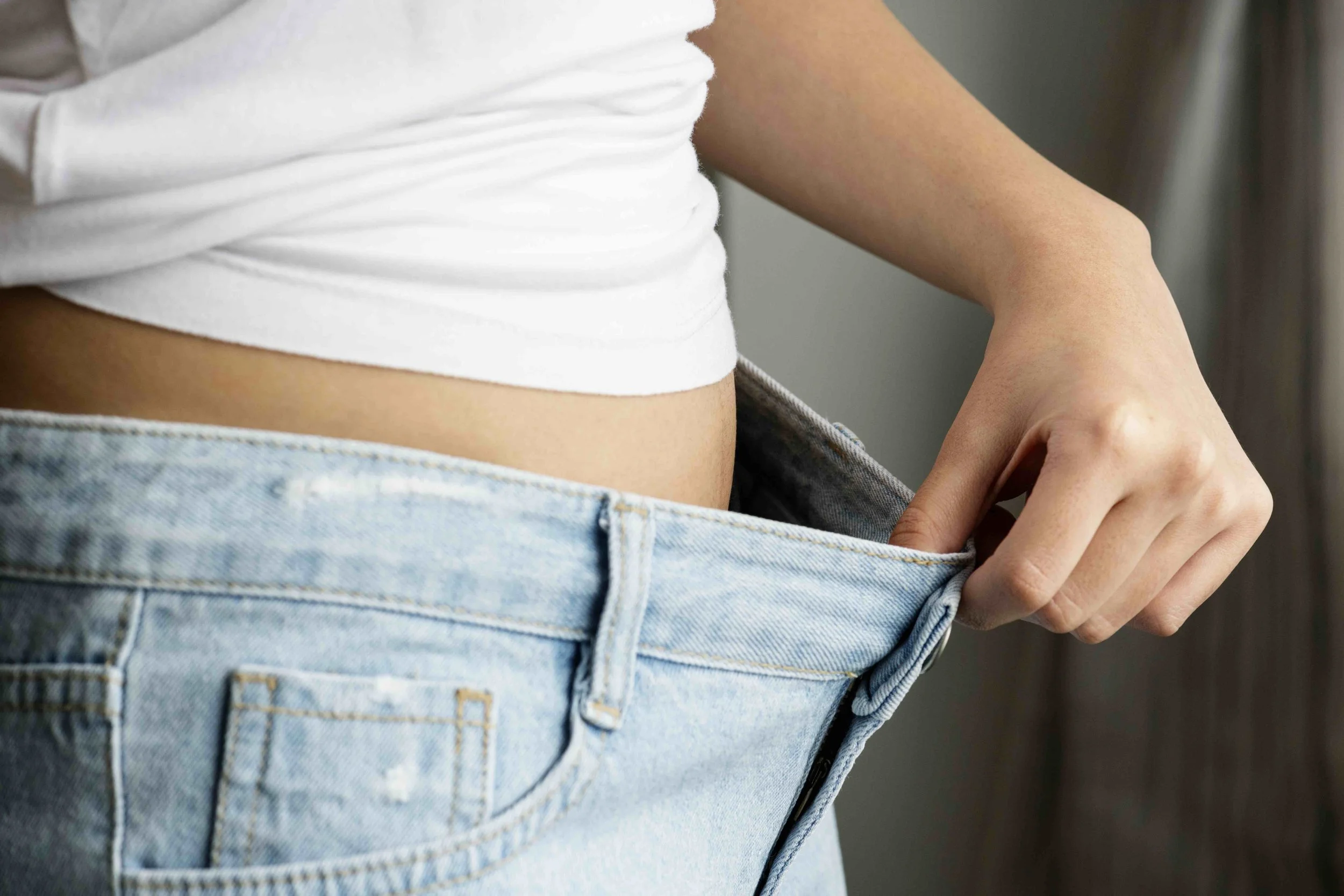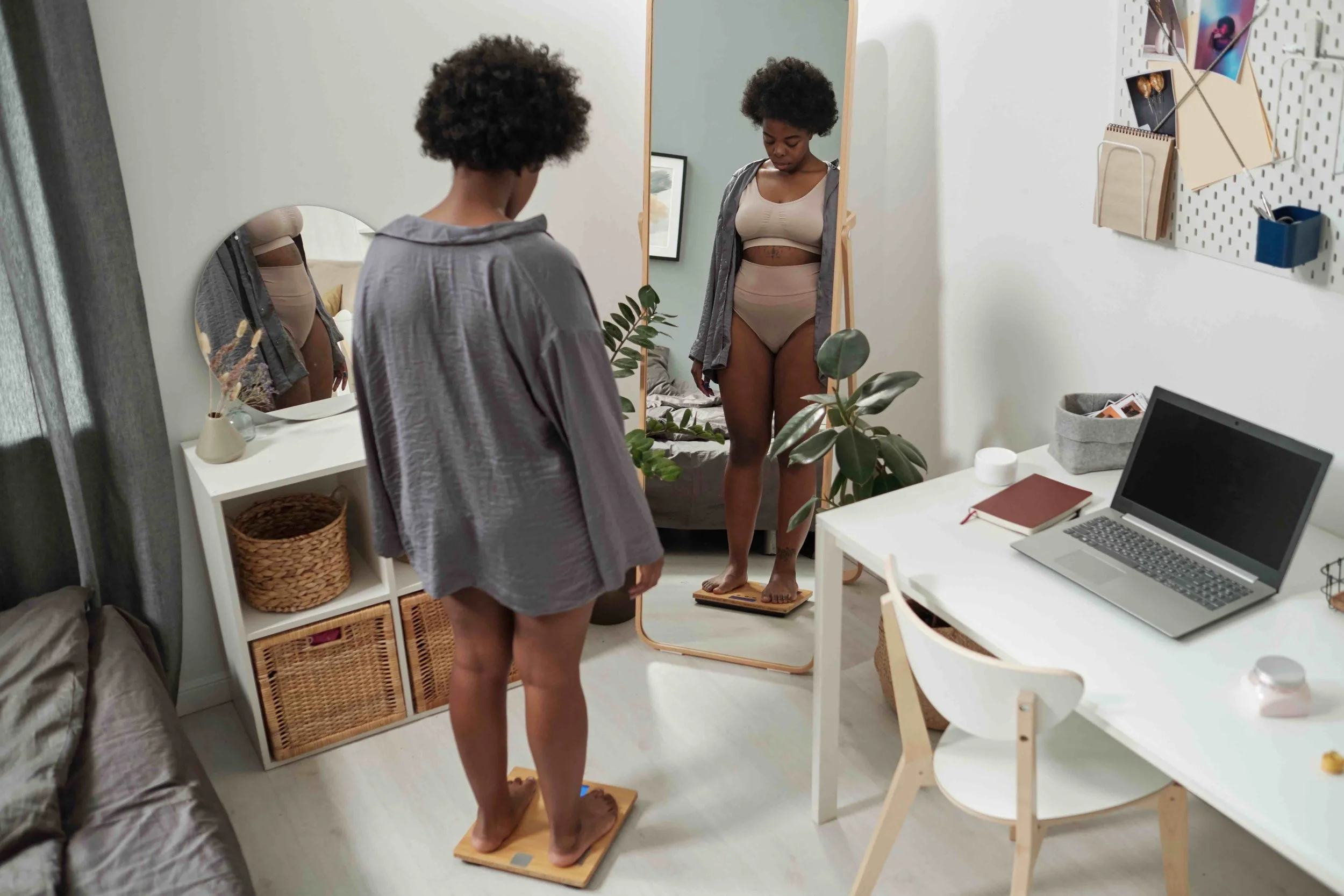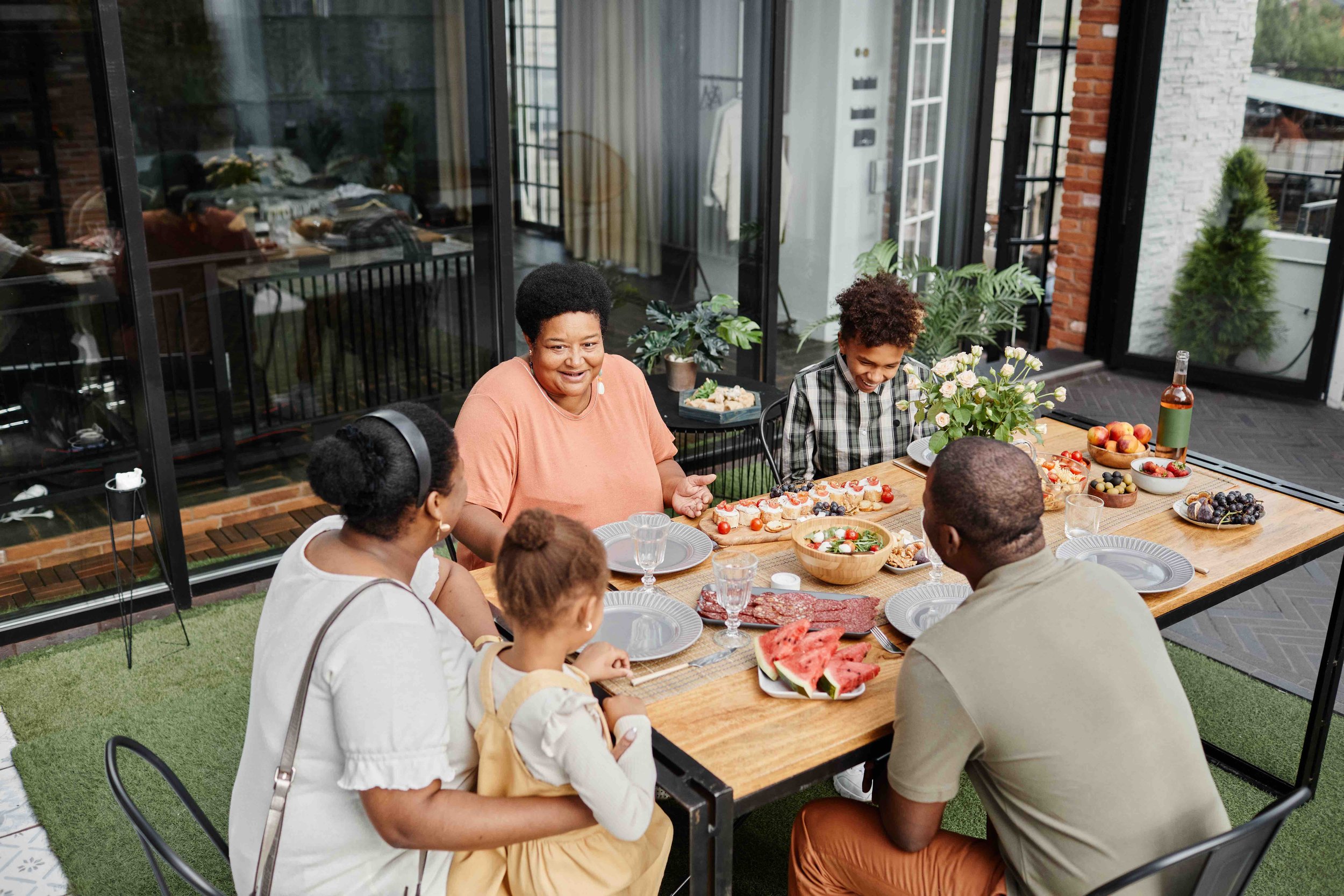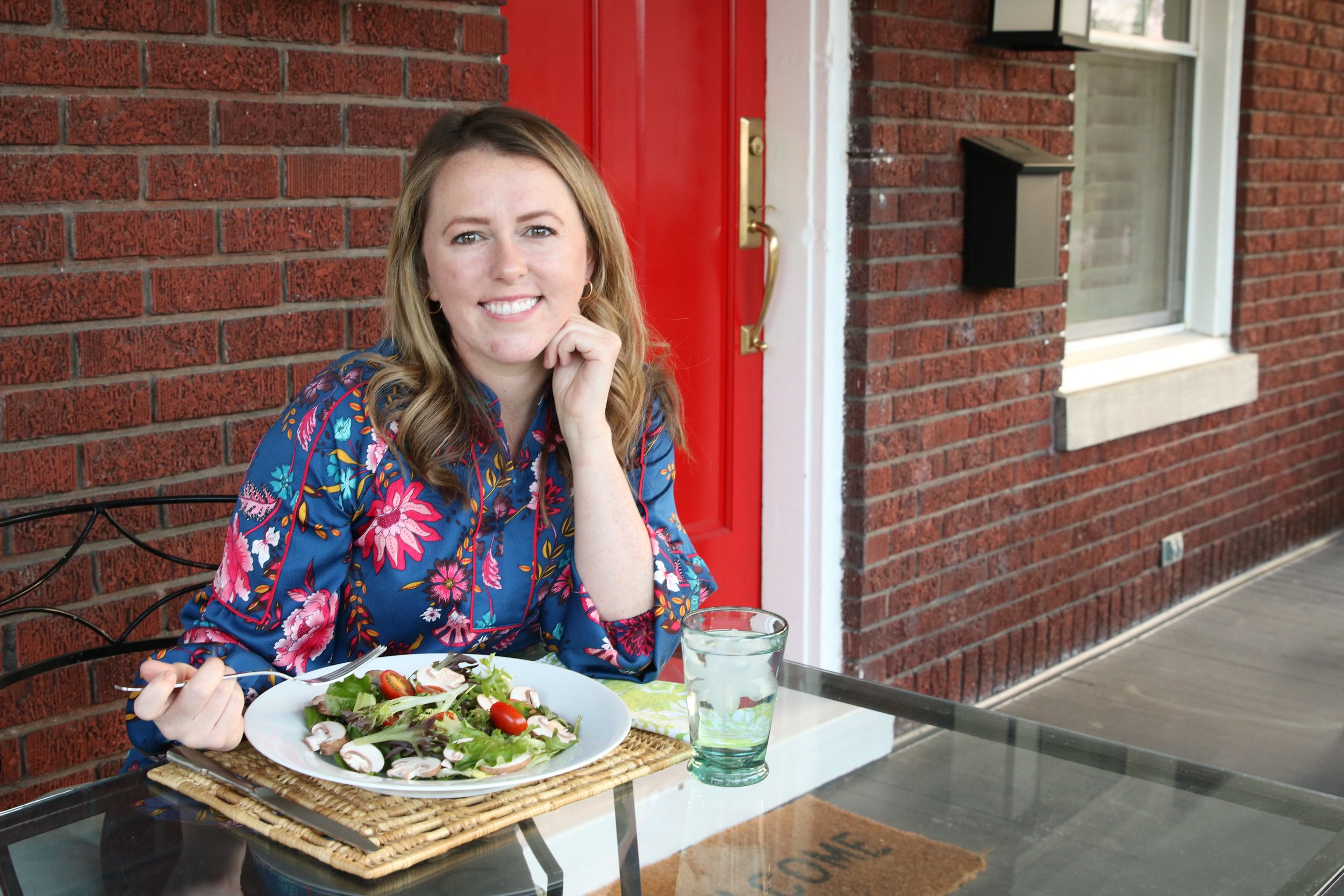Will Intuitive Eating Help You Lose Weight?
Everyone wants to know how to lose some extra weight. Diet culture pushes ads for products and services down our throats promising easy weight-loss solutions, and the typical equation they provide for losing weight looks something like this:
Weight Loss = Increase in Exercise + Decrease in Calorie Consumption
Here’s the problem, diets usually don’t provide long-term health benefits. In fact, most people see a slow weight creep back to their normal weight after working incredibly hard to lose it.
As an intuitive eating dietitian, a potential client’s first question is almost always if they will lose weight with an IE diet. There’s a fundamental flaw in the question though because Intuitive Eating isn’t a diet.
And because Intuitive Eating follows a “done-with-you” model rather than a “done-for-you” model, it really depends on the person. So what do I mean by this?
What is Intuitive Eating?
To begin, Intuitive Eating (IE) is not a diet that helps you intentionally lose weight. Intuitive Eating is a non-diet approach with 10 core principles that helps you get back in touch with your body and heal your relationship with food.
Intuitive Eating allows you to make informed decisions on what you want to eat based on what sounds good to you, what is available, how that food will make you feel, etc.
IE teaches you how to listen to what your body is telling you and trust that your body’s cues can guide you to the food it needs.
It also helps you to dismantle any food rules or restrictions you have created in your mind, ultimately leaving you in a peaceful realm without guilt or shame because of your food choices.
Intuitive Eating and Weight Loss
For Intuitive Eating to work, you need to place your desire for weight loss on the back burner.
Are you a bad person for wanting to lose weight? Heck no! Diet culture convinces us that we all want to lose weight—whether that’s 10 pounds or 100 pounds. Beauty standards consisting of smaller bodies are the norm in today’s day and age.
Once you realize you don’t have to change your body to fit societal norms is one of the goals of the Intuitive Eating approach.
This allows some clients to begin their IE journey with the desire to lose weight but place that desire aside later down the road. Some clients realize that their body doesn’t need to lose weight.
Instead, they may find they need to make other changes instead. This may include establishing a healthier relationship with food, finding more time for exercise, making sustainable tweaks to their diets or actually gaining weight.
Because diet culture focuses on the number that the scale shows each morning, we forget about the other more important measurements of a healthy diet and healthy life.
Why IE Doesn’t Focus On Measuring Weight
When you set a goal to lose weight, you disconnect yourself from your body. You focus on the scale, rather than how you are feeling.
Imagine you’re feeling great. You feel like you are doing well with your breakup with fad diets. You are moving your body in ways that feel good and eating foods without guilt or shame.
Then one day, you go to your friend's house, and you see a scale in the bathroom. Are you tempted to get on the scale and see how much you weigh? Of course, you are.
That’s when you get on the scale and weigh the same as you did a month ago. You immediately feel defeated. You begin to question your internal judgment.
You just gave power to an external object rather than your body and how you’ve been feeling. Scales might be great for measuring mass, but they’re horrible indicators of overall healthiness.
Unless you’re on a journey to lose 100 pounds, measuring weight at regular intervals, in my experience, actually holds my clients back from achieving their health goals.
This is because our weight fluctuates daily. We might have additional water weight one day and be extremely dehydrated the next.
While the scale measures a significant weight loss that leaves us feeling a momentary victory, the overall picture of our health tells a very different story.
Weight Loss ≠ Healthiness
There are several reasons why someone could be in a smaller body or weigh less aside from that being intentional.
Many cancer patients lose weight during treatment.
Chronic diseases or diagnoses can cause rapid weight loss.
Eating disorders can cause significant weight loss.
All of these examples show how a person can show increased weight loss but decreased healthiness.
There are an unending number of factors affecting our weight every day.
Water retention
Hydration status
Hours of sleep
Menstrual cycles
Bowel movements
Stress
Age
Medications
These all affect our weight each day and cause us to have some level of fluctuation each time we step on the scale, and that’s just a small part of the list.
So these are all reasons that weight should not be equated to being “healthy.”
The Psychology Of Weight
Your weight does not have power over your worth. All humans matter and all humans are beautiful in their unique ways.
We all have different hobbies, food preferences, bodies, jobs, and lifestyles that make us different. It would be very boring on Earth if we all looked and acted the same.
It would be wrong of me and any other dietitian, nutritionist, or health coach to put together a “health plan” for you that’s not individualized. And most popular diets aren’t individualized for your specific health needs.
That is why I love Intuitive Eating because it allows you to work through the 10 principles however you feel fit and serves your life.
It encourages you to dismantle diet culture, question your reasoning for wanting to lose weight, pursue a movement that fits you and find foods that nourish you.
Once clients put away the scale and work through their relationship with food, they find freedom in creating a personal definition of healthiness. I’ve seen Intuitive Eating strategies bring clients joy, satisfaction and fullness to their lives instead of leaving them empty.
Using Set Point Weight Theory To Build Diet Programs
So, can you lose weight? Maybe, but we’re all different people. Sometimes people gain weight on their IE journey, some people lose weight, and some people stay the same.
The goal for many clients becomes staying around the same weight because that’s known as our set point weight. Our bodies want stability. They want to maintain a neutral weight to perform their best.
If you’ve been restricting and dieting for years, your set point weight may actually be greater than you expected. That’s okay. Your body is playing catch-up from all of the years of starving it for the number of nutrients it needs.
My Story
Once I gave up control over food and worked through my body image, my set point weight went up. I have been about the same weight now for 1.5 years.
In my previous life, I would have freaked out if I ever weighed this much. I obsessively worked out and ate salads. I was “thin" but miserable.
Now, it’s a completely different story. I’ve accepted my body functions best at this weight. I’m okay with that.
I trust my body can do everything I want it to at this weight. So why should I pursue anything else?
How I Can Help You
I know it’s not easy to give up the goal of weight loss. It is such a fantasy, but once you do, you can live life the way it’s supposed to be lived. No more chasing numbers on a scale or a specific waist size.
If you fear weight gain, check out my previous blog where we discuss the fear it comes from.
If you don’t think you could ever put weight loss on the back burner, then I challenge you to hide your scale from yourself for a month or two. See how you feel.
Do you feel anxious? Do you feel out of control? Do you feel free? Are you happy?
This challenge can help you start to get back in tune with yourself and allow you to listen to what your body is telling you without a number dictating that.
Talk With Elizabeth
Elizabeth is a registered dietitian helping Kentuckians find a healthier, fuller life. She’s been in your shoes and can help you with your health goals. If you want to discuss how the Intuitive Eating approach can benefit you, send a message.







